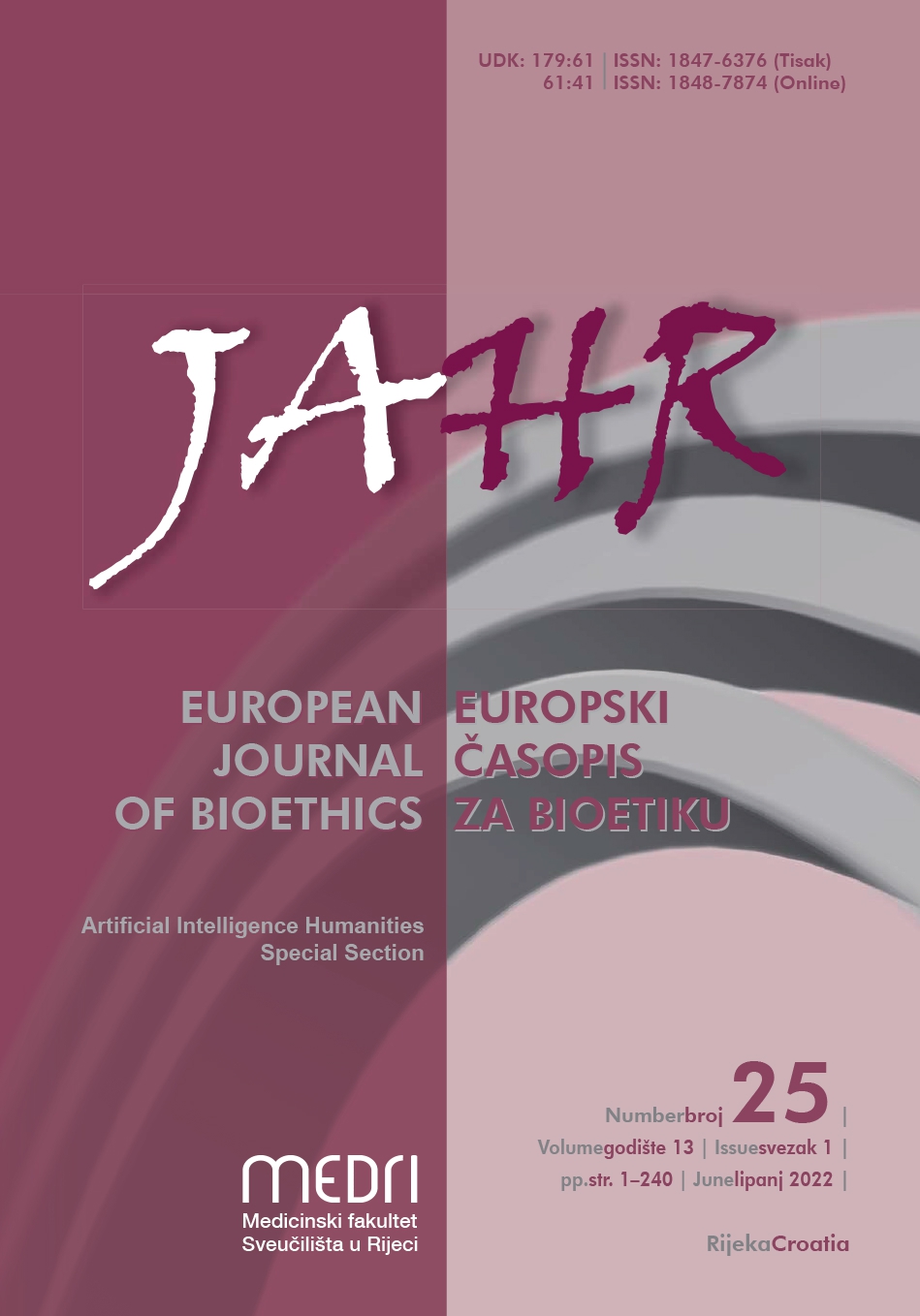From moral values to public health effectiveness
The place and importance of trust during the COVID-19 pandemic
Keywords:
moral values, ethics, trust, public health, COVID-19 pandemic, bioethics, CroatiaAbstract
https://doi.org/10.21860/j.13.1.7
The COVID-19 pandemic has put every contemporary society in front of various challenges. While those are often reflected and explained through economic, political or medical lenses, it seems that thorough ethical and bioethical insights are too rarely exposed and made explicit. This article tries to contribute to the neglected sphere of interconnection and interrelatedness of basic moral values and general, primarily public health, challenges. Moreover, it will be argued that by deeply disrespectful behaviour of chief institutions and inappropriate communication to the overall community (citizens) the value of elementary trust and respectfulness has been eroded, betrayed, and consequently brings to the plethora of economic, political, medical, and other challenges and troubles. The key argument is that the effectiveness of the public health measures is primarily rooted in stable and publicly communicated basic values, such as life and health, but the stability and communication of those values lays mostly in moral values such as trust, respect, fairness etc. One of the most important lessons this pandemic could give the humanity is the almost self-evident, but often forgotten insight, that moral values are the necessary glue of all values needed for functional society (and generally functional global community on Earth). The examples will be taken from the Croatian example of social, political, and institutional confrontation to the COVID-19 pandemic.
Downloads
Published
Issue
Section
License
Authors who publish with this journal agree to the following terms:
- Authors retain copyright and grant the journal right of first publication with the work simultaneously licensed under a Creative Commons Attribution License that allows others to share the work with an acknowledgement of the work's authorship and initial publication in this journal.
- Authors are able to enter into separate, additional contractual arrangements for the non-exclusive distribution of the journal's published version of the work (e.g., post it to an institutional repository or publish it in a book), with an acknowledgement of its initial publication in this journal.
- Authors are permitted and encouraged to post their work online (e.g., in institutional repositories or on their website) prior to and during the submission process, as it can lead to productive exchanges, as well as earlier and greater citation of published work (See The Effect of Open Access).



